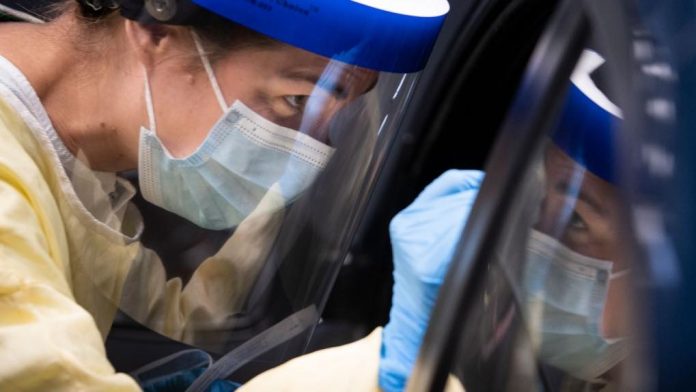With vaccinations surging across Canada, and confirmed COVID case counts and hospitalizations at a national level declining, the other side of the pandemic is drawing tantalizingly, mercifully closer and experts are beginning to offer glimpses of the future.
There are still many unknowns, and only speculations as to “what next,” but the story that began with a pneumonia of unknown cause in Wuhan, China 17 months ago won’t end abruptly, epidemiologists say.
“We will not eradicate COVID-19, at least not probably for the next decade,” Dr. Peter Jüni, scientific director of Ontario’s COVID-19 science advisory table told a recent Ontario Medical Association briefing. Instead, the virus will shift to being a seasonal disease, something more like a “tedious influenza,” Jüni said.
Ashleigh Tuite agrees SARS-CoV-2 will be with us for a while, “possibly forever.” But vaccines and population immunity will end the pandemic, Tuite, an epidemiologist at Toronto University’s Dalla Lana School of Public Health, said in an email. The more people vaccinated, the more immunity, the less transmission and disease.
Two doses of Pfizer or Moderna provide over 95 per cent efficacy.
“That puts the measles vaccine almost to shame. That’s how effective these vaccines are with two doses,” said Dr. Gerald Evans, head of the division of infectious diseases at Queen’s University in Kingston.
“It’s not that you’re going to wipe out the infection — that’s not going to happen. It’s going to circulate. It’s just that it can’t circulate very effectively,” Evans said. “If you’ve got eight out of every 10 people vaccinated, and hopefully nine out of every 10 people vaccinated” there are fewer people left who can spread the infection to others.
All the coronaviruses that cause the common cold, like the alphanumeric 229E or OC43, at one point emerged into the human population from an animal reservoir “and probably produced something like we’re seeing with COVID-19,” Evans said. The human race ultimately adapted, the virus itself became attenuated “and now we just accept it as one of the common cold viruses that sort of pop up,” he said.
His view is that a similar story is playing out again. “Except now, in the 21st century, we can accelerate that whole evolutionary process, because we’re going to have vaccines to protect everybody while this virus emerges itself out into the human population as a human coronavirus.”
Still, the situation in India is a continuing catastrophe, other parts of the globe remain fraught, the variants are keeping many people nervous, questions remain over mixing vaccine doses ( though preliminary results from a Spanish study suggest AstraZeneca followed by Pfizer is safe and may elicit a strong immune response) and it’s not yet clear just how long vaccine-induced immunity lasts.
With a new endemic virus, ongoing vaccinations will likely be required “as far out as the eye can see,” said Amir Attaran, a law professor at the University of Ottawa who holds a doctorate in immunology. “Certainly for the amount of time it takes to vaccinate other countries in the world, because they will continue generating variants that eventually make their way to us.”
“We’ve demonstrated in Canada that we don’t really wish to be Australia and wall ourselves off in quite the same way, so variants will get here,” Attaran said. “And if you take the assumption that, even with a full court press you’re not going to vaccinate over half the world until 2024, then, yeah, we’re in this for a few years.”
The SARS-CoV-2 virus could evolve into something gentler or more ferocious. Both are equally possible, Attaran said. But the odds of a variant emerging that simply evades vaccination no matter what’s thrown at it are “very, very low,” he said. “You’ll just have to tweak the vaccine again and again and again. But that’s flu. That’s what we do for flu. And this virus is less of a trickster than flu. So we can get there.”
































